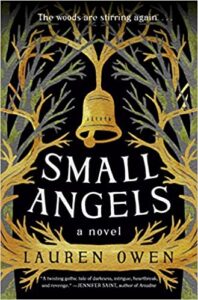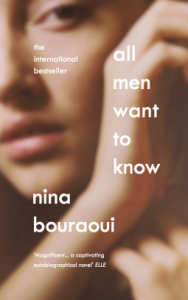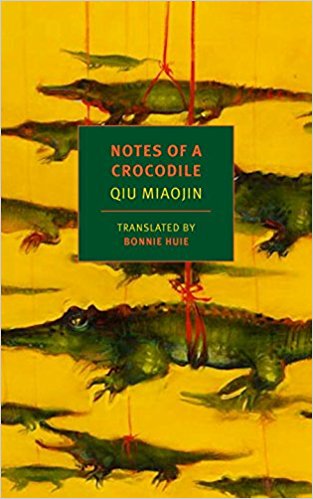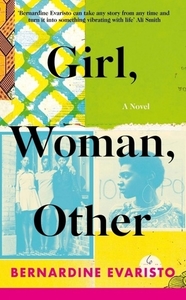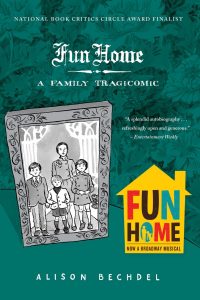Amazon Affiliate Link | Bookshop.org Affiliate Link
Dark, Gothic, and atmospheric, Lauren Owen’s new novel Small Angels (August 2022) is perfect for fans of spooky queer fiction and it’s out just in time for autumn! This book is definitely one to add to your Halloween TBR.
Small Angels begins in a small English village with a story that unfolds across decades—or centuries. In the present day, Chloe has looked forward to her wedding to Sam for months, and to her there is no more perfect place to hold the ceremony than at the local village church, Small Angels, in the place where Sam and his sister Kate, grew up. But Small Angels is no ordinary church, and the residents of the village know to stay away. Soon, the locals recount harrowing stories of violent hauntings and dark rituals associated with the church and the infamously reclusive Gonne family who tended it, and what’s worse, Chloe begins to see and hear things she can’t begin to explain.
At the same time, Sam’s sister Kate has been reluctantly drawn home for her brother’s wedding. Narrating her memories, Small Angels and the nearby Gonne family estate hold many painful memories. Escaping her parents’ fighting as a teenager, Kate was drawn into the lives of the four Gonne sisters and their complex relationship with Small Angels. She learns that the woods behind Small Angels are home to a malicious and unsettled ghost whose violent death has led him to haunt the woods and the Gonne estate. For generations, the Gonne’s have appeased the ghost and prevented him from attacking the villagers beyond the woods, but a terrible event disrupts the tentative harmony of the Gonne’s and the ghost.
Chloe’s wedding begins to awaken something in the woods beyond Small Angels, and if Kate and the one remaining Gonne sister can’t stop it, there’s no telling what might happen.
Although the plot of this book seems complex, Owen unfolds Small Angels beautifully. There is a lyrical, unsettling quality to the novel that threads together a number of events and perspectives in a way that I found engaging and intriguing. Owen develops the world of the novel slowly, framing the events around an isolated English village as both out of time and place, and yet vividly real nonetheless.
The ghostly mystery and paranormal action of this novel make it a perfect read for fall, and Small Angels strikes an excellent balance between literary fiction and horror writing. Each of the characters was effectively drawn, and multiple perspectives allowed for a thorough representation of the world in this novel and all of its intricacies. I felt as though the pacing of this book left me unable to put it down, and I finished Small Angels in a matter of days. I highly recommend this book for fans of Alix E. Harrow, V.E. Schwab, or Julia Armfield.
Not to mention, this is a queer novel! I haven’t seen that aspect of this text as widely talked about (probably due to my own failing), and I didn’t know when I started reading that the novel would be partially centered around a lesbian love story, but it was a pleasant surprise and a very happy discovery. I highly recommend Small Angels as a spooky read for any time of the year, and I’ll definitely be reading Lauren Owen’s fiction from now on.
Please add Small Angels to your TBR on Goodreads and follow Lauren Owen on Twitter.
Rachel Friars is a writer and academic living in Canada, dividing her time between Ontario and New Brunswick. When she’s not writing short fiction, she’s reading every lesbian novel she can find. Rachel holds two degrees in English literature and is currently pursuing a PhD in nineteenth-century lesbian literature and history. You can find Rachel on Twitter @RachelMFriars or on Goodreads @Rachel Friars.

